Reducing your carbon footprint when traveling: guide to sustainable tourism
Reconsider your choices to reduce your impact
Photo credit: Andrew Neel
If you’ve ever estimated your carbon footprint, raise your hand! (if this is not the case, we recommend that you take part in a 2-tonne workshop)
Were you surprised to see how much of your carbon footprint is accounted for by your travel/vacation? A reality often overlooked despite our daily efforts. Not surprising, given that tourism accounts for 10% of global greenhouse gas emissions. It’s easy to get discouraged. Or come to the conclusion that the best solution is to stay at home…
But when you’ve had the chance to discover the richness of other cultures, it’s often difficult to consider that your playground will be limited to your own country: an environment that may be diverse and magnificent, but that may not offer the same experience.
What if the best prospect was to reconcile the pleasure of travel with greater respect for the planet? To opt for low-carbon, eco-responsible travel?
Here’s a guide to reducing your carbon footprint when you travel: our tips and best practices for making travel an exciting, guilt-free experience!
Change your mode of transport: opt for environmentally-friendly transport
Travel represents ¾ of the impact of a trip. One of the elements that is often overlooked? The journey from origin to destination has a major influence on the footprint of a trip.
So making clear choices from the outset is essential to reducing your carbon footprint when traveling.
It’s essential to consider your mode of transport, as well as the region(s) you’ll be exploring.
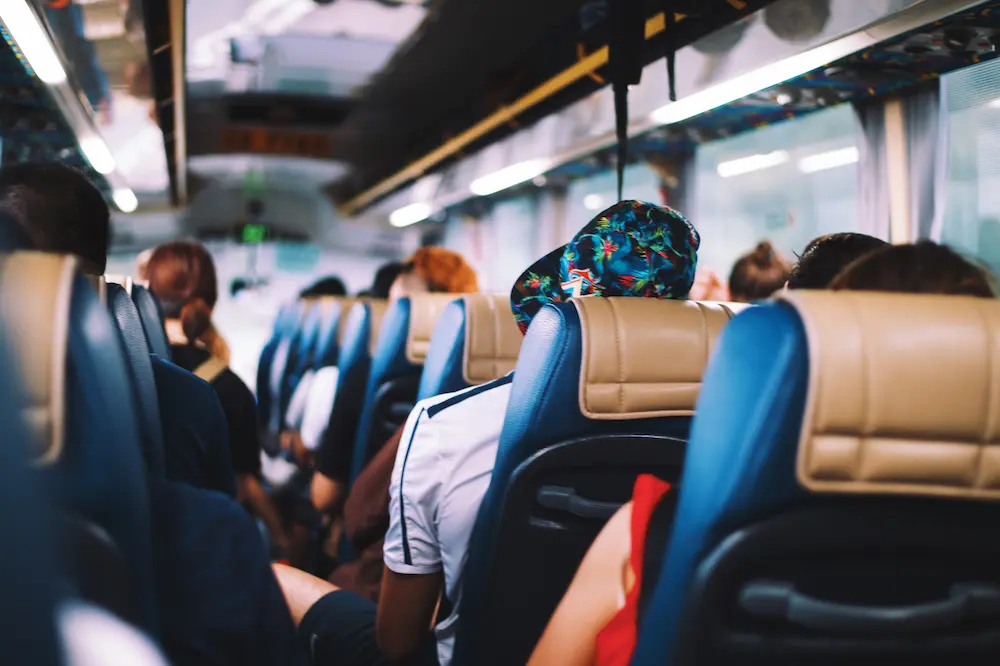
Photo credit: Annie Spratt
There’s only one solution: avoid the most polluting and CO2-emitting modes of transport.
Forget the plane and the combustion-powered car.
For example, on a 1,000 km journey, compared with a high-speed train, an airplane will emit 75 times more and a combustion-powered car 45 times more (for a vehicle with one passenger).
But choosing environmentally-friendly transport doesn’t mean sticking to a single mode.
Long-distance transport
Numerous options are available:
- Trains: including night trains, which allow you to cover long distances without “suffering” the journey time or impacting your vacation time.
- The bus: often a very economical option. It is widely used throughout Europe, especially when traveling in Eastern Europe.
- Carpooling: a choice that also allows you to meet new people and share a journey with other travelers. Applications such as Blablacar are well established in Europe.
- A roadtrip in an electric car (ideally with several passengers): if the combustion car is to be avoided, today we have a more ecological option, including electric cars as rental options. If the region you’re exploring is well-equipped for electric recharging(Europe network map), this is a serious option to consider, especially for areas with poor public transport.
Local transport
As well as choosing modes of transport for long journeys, it’s also vital to consider public transport. These are essential for exploring the city, as are local bus networks and regional trains in more rural areas.
In any case: opting for public transport is always the right choice to reduce your impact.
And don’t neglect all the soft mobility options, such as cycling and walking, which allow you to discover a destination in a different way and take your time.
In this case, zero-carbon travel!
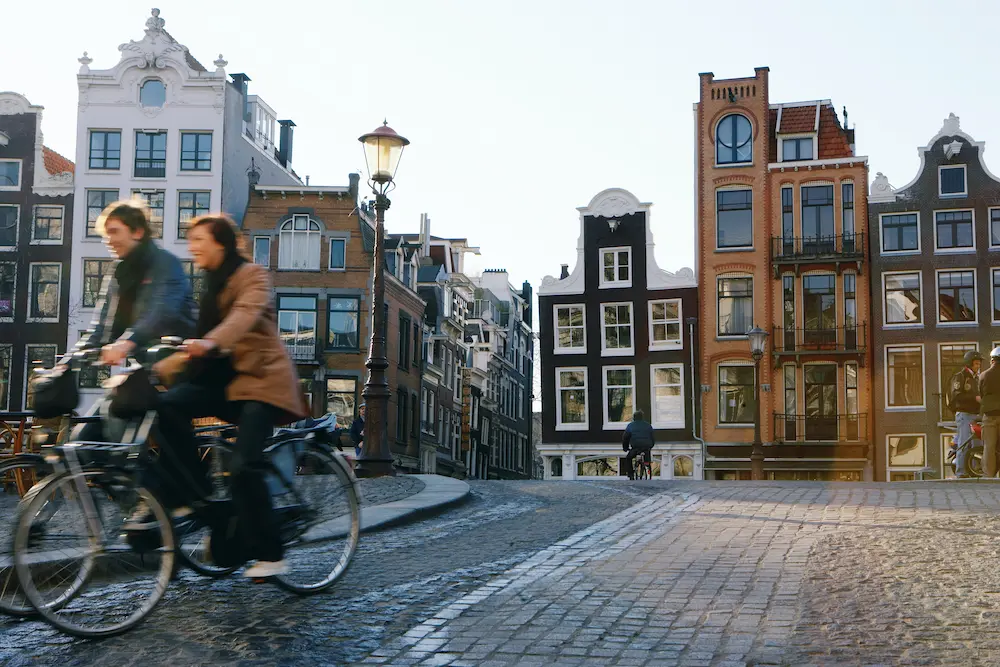
Photo Credit: Getty Images
Sustainable accommodation on a human scale
Beyond transport, accommodation is the second major contributor to greenhouse gas emissions.
Reducing your carbon footprint when traveling also means opting for accommodation that minimizes your impact. Here, we can consider not only the environmental impact but also the social impact of our choice. Avoid the big hotel chains and opt for local, independent operators. It means promoting a local economy and a diversity of players.
Accommodations and sustainable tourism
Choosing sustainable or eco-responsible accommodation can thus cover different types of accommodation:
- Hotels : Small, independent hotels with a limited number of rooms, which facilitate interaction and may also be involved in resource conservation initiatives.
- Bed and Breakfast: city or country location. They guarantee a contact with residents, who can also be active through their choices (electricity, waste management) in an environmental approach.
- Youth hostels : more and more are taking steps to conserve resources and minimize waste.
- Campsites and accommodation in natural surroundings that are often committed to preserving their environment
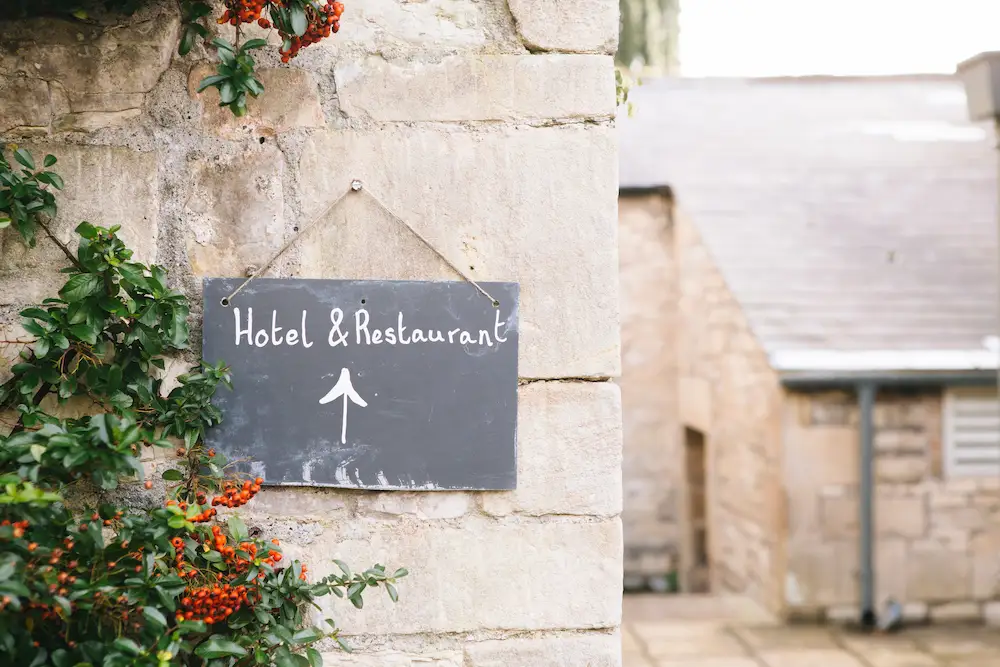
Photo credit: Jason Briscoe

Photo credit: Getty Images
Labels and criteria
More and more labels are being developed in Europe to identify service providers who are active in an eco-responsible approach(Ecolabel, Clef Verte/Green Key, Green Globe…). They can help you identify hotels that are taking steps to optimize their resource consumption and waste management….
These labels are based on independent audits and their own lists of criteria. On operators such as Booking.com, you can also find a rating(Sustainable Tourism Level). It is based on the declaration of actions taken by the owner of the accommodation.
These labels and information can be used as indicators and decision aids. But no label doesn’t mean that an accommodation isn’t committed to or aligned with your values. In any case, it’s important to consult the accommodation presentations to make up your own mind.
Reducing your carbon footprint when traveling: best practices and eco-responsible behavior
Travelling is also consuming like at home.
And here, it goes without saying that applying your good habits is the best way to travel.
Reduce, reuse, buy local…
Reduction & savings
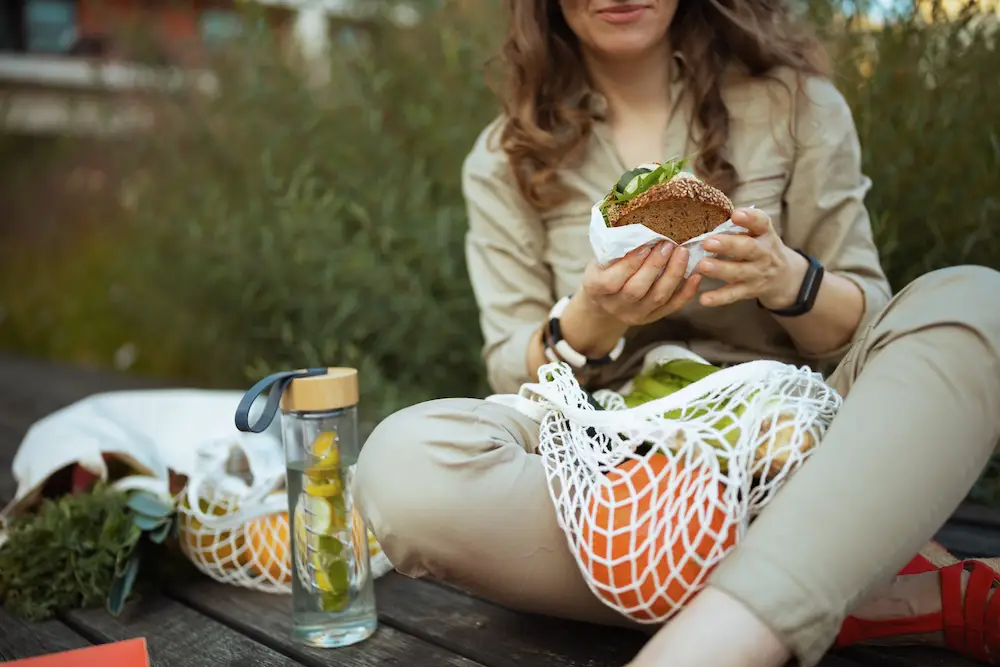
Photo credit: Getty Images
- Avoid wasting food: you don’t want to bite off more than you can chew, even though local specialities can be very tempting! Plastic boxes or bags are great for storing and transporting fruit, sweets and other delicacies that you don’t want to finish after a meal…
- Equip yourself to limit waste : don’t forget a few travel essentials (water bottle, plastic can, cutlery, shopping bags….). So much single-use equipment that we avoid using.
- Be thrifty with the resources and energy we consume: even if we’re not at home and don’t have to pay the electricity and water bills, why go overboard on vacation? That’s why we always prefer short showers, turn off the lights as soon as we leave a room, and avoid leaving our appliances charging non-stop….
Pay attention to the thermostat in the room if it can be controlled so as not to overheat. And don’t over-use the air conditioning! - Eat meat occasionally : far be it from us to discourage you from enjoying local specialities, but why not keep a few meals where you prefer a vegetarian or red meat-free diet? Over and above the type of cuisine, choosing restaurants that promote local produce and short distribution channels will guarantee authentic, less resource-intensive cooking.
Prefer local shops
Reducing your carbon footprint when you travel also means respecting the places you visit and supporting the local economy. When it comes to buying souvenirs and choosing restaurants, you can’t go wrong by prioritizing local businesses, regional know-how and establishments rooted in a unique terroir and culture.
Wouldn’t it be a shame to spend time on chains you can find at home?
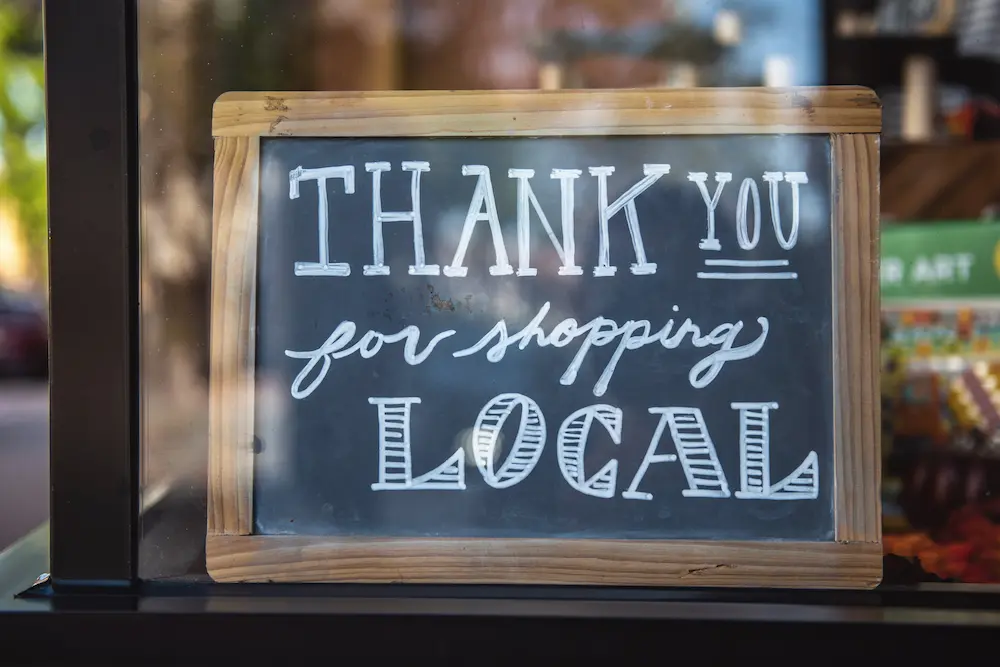
Photo credit: Tim Mossholder
You can also read our tips for low-carbon travel on a budget in our dedicated article here.

Photo credit: Frank van Hulst
Travelling with minimal impact means taking the time to make the right choices. If you take into account means of transport, accommodation and behavior, you can easily reduce your carbon footprint when traveling.
It may take a little more effort and research, but you’ll soon develop new automatisms. Making these choices will also lead you to experience a different kind of travel: one where you take your time, where you give priority to meeting new people and discovering a new culture. And chances are, you’ll enjoy it!
If you want to travel low-carbon and eco-responsibly without complicating your life, our teams at Detour Odyssey are here to help, creating and accompanying your low-impact trip.
Discover our concept and mission.
Contact us or explore our touring loops to make your trip a reality.
Turn desires into projects and reduce your carbon footprint while traveling!

